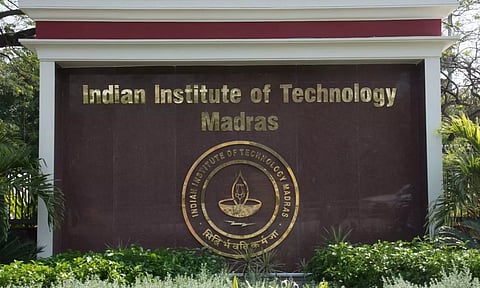

CHENNAI: The Indian Institute of Technology Madras (IIT-M) on Tuesday announced that their researchers are developing a point-of-use, portable tool to detect heavy metals in soil and water.
"The research objective is to package the technology into an engineered device, which will be programmed to provide a non-technical read-out value of the soil quality index on a mobile phone-like application. At present, there are no field-usable or point-of-use solutions that a layperson can operate for heavy metal detection in soil," said a release from IIT-Madras.
According to data from the Union Ministry of Jal Shakti, Government of India, it is estimated that drinking water sources in over 36,000 rural habitations in India are affected by fluoride, arsenic, and heavy metal contamination.
"The presence of heavy metals also affects soil quality by adding to soil salinity, which would have a significant counterproductive effect on global food security through reduced agricultural yield and adverse effects on human health. Existing high-end techniques like 'Inductively Coupled Plasma-Optical Emission Spectroscopy' (ICP-OES) are not user-friendly to laymen and farmers as they require lengthy procedures, with heavy reliance on sophisticated laboratories. A point-of-use, portable device operable by laypersons has immense benefits, both from social and economic impact perspectives," it added.
Highlighting the potential key impact of this technology, Professor Sreeram K Kalpathy of IIT-Madras said, "The extensive reliance of the Indian population on agriculture necessitates an immediate technological solution such as detecting and measuring heavy metal concentrations. This would give farmers the information they need for deciding which crops to cultivate and when to make interventions."
"Current ongoing research is focused on achieving higher resolution detection capabilities for Copper, Lead, and Cadmium (in ppm levels), as well as achieving selective detection of specific metals. Testing of real soil/water samples to validate our concept is currently in progress. In this context, with the support of the Rural Technology Action Group at IIT Madras, (RUTAG-IITM) we have also analysed water quality and heavy metal presence in water samples collected from several temple tanks in Rameswaram, Tamil Nadu. We are aiming to have the technology validated and demonstrated in a field environment over the next 3-5 years," he detailed.